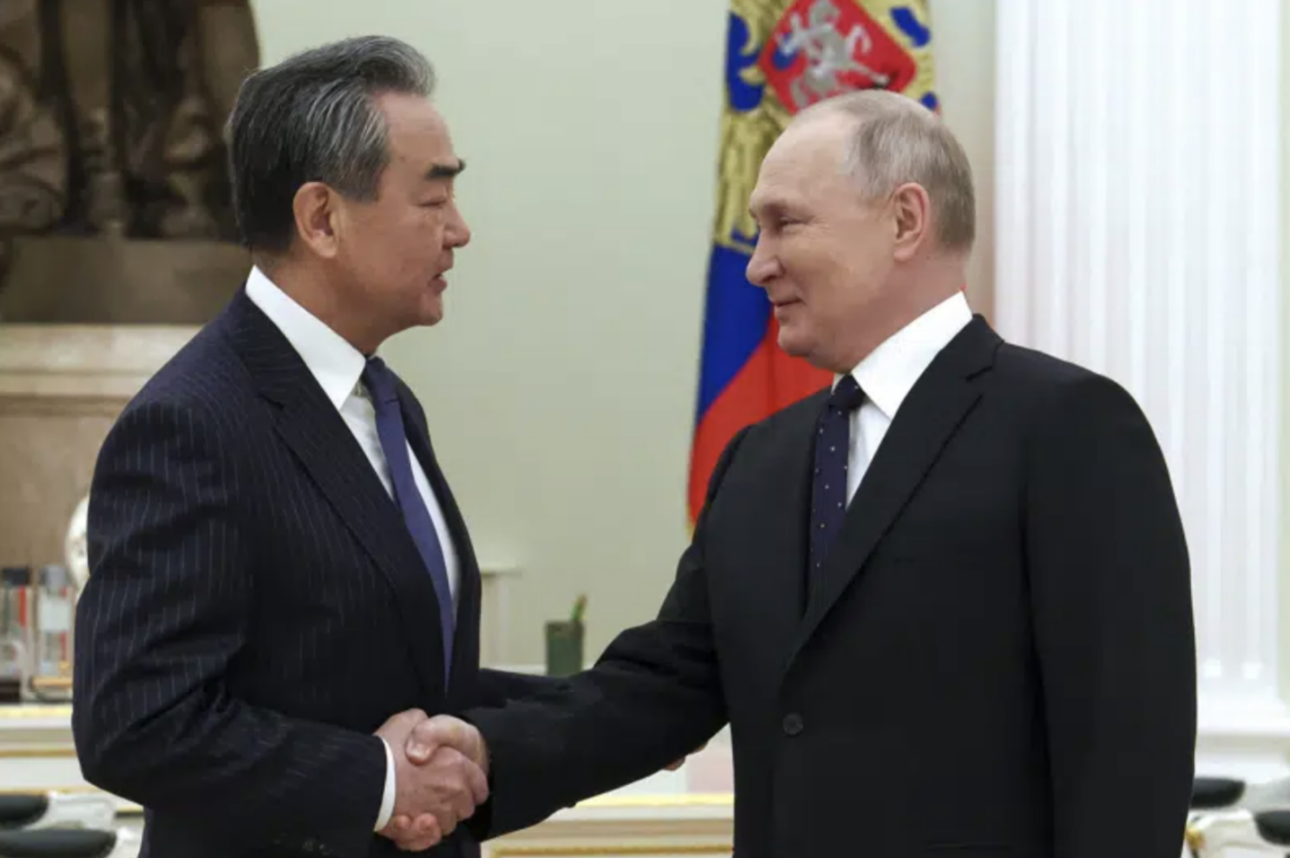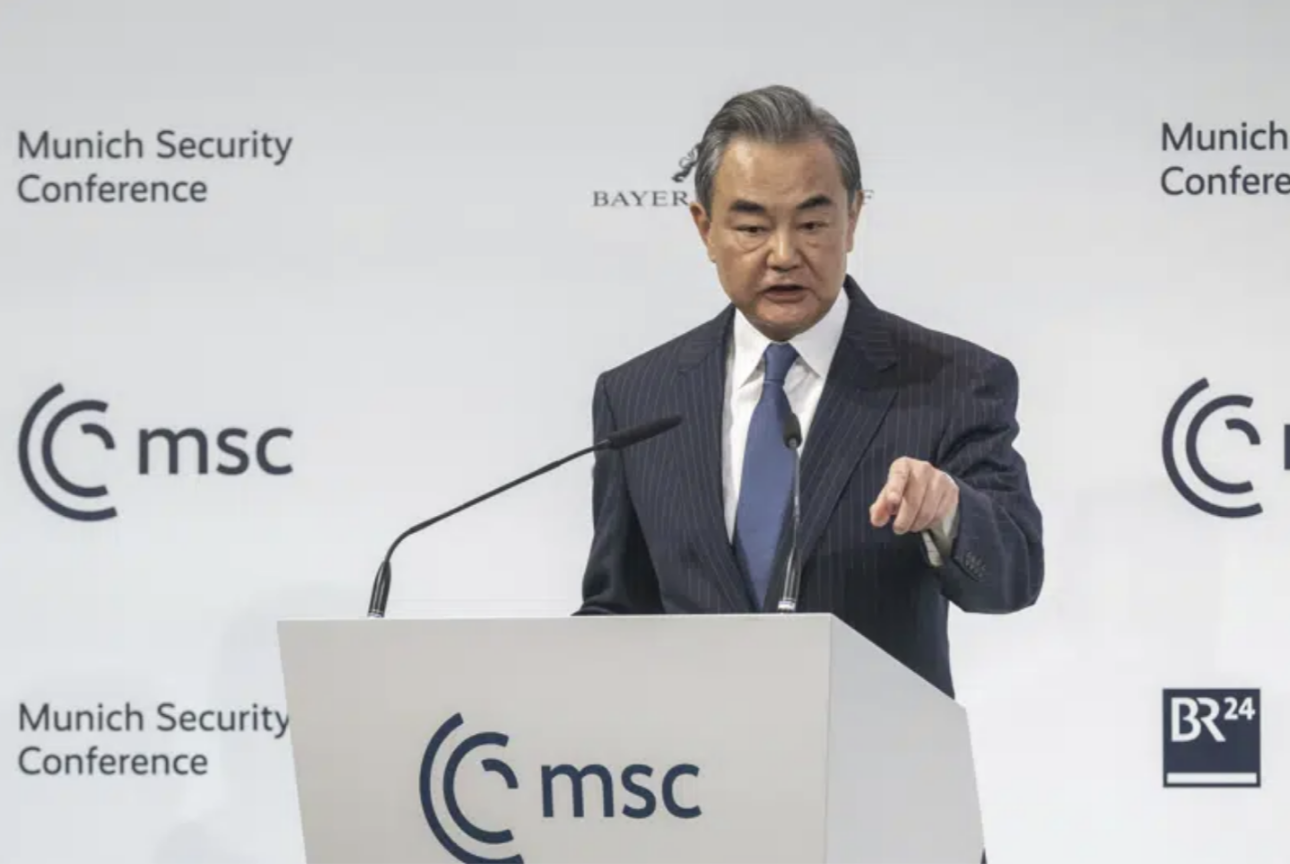China Floats Politically Charged Mediation in Ukraine
Vladimir Putin and CCP Foreign Policy Chief Wang Yi shake hands at their meeting in the Kremlin in Moscow, Russia, Feb. 22, 2023. Photo: Anton Novoderezhkin / Sputnik Kremlin Pool Photo via AP
Feb. 24 was an auspicious day in the Russo-Ukrainian conflict; the date marked one year since hostilities, and nine years since the Russian partition of Crimea. On that day in 2023, China made its first major offer of mediation to the embattled nations.
In a public, 12-point proposal, China called for a ceasefire in the hopes of “[preventing] the crisis from deteriorating further or even spiraling out of control”. The carefully worded document calls for the respecting of the sovereignty of all nations, while remaining mum as to which nation's sovereignty they are advocating for -- Donetsk, Luhansk, or Ukraine are all possible candidates. For a resolution to the humanitarian crisis, while criticizing the politicization of said crisis.
The offer of mediation came only a day after a UN resolution officially calling for an end to the war passed with 141 nations for, 7 against, and 32, including China, abstaining. Subsequently, the clearly politically charged list has drawn widespread criticism from Western leaders. US President Biden has voiced the most direct criticism of China’s proposal to ABC News’s David Muir, saying he’s “seen nothing in the plan that would indicate that there is something that would be beneficial to anyone other than Russia if the Chinese plan were followed”.
The official stance of the Ukrainian government is that of cautious encouragement. No official rejection of the deal has been released, but there has been no indication that Ukraine has seriously considered China’s offer. Head of the Penta Center think tank in Kiev, Volodymyr Fesenko, believes this hesitant openness will continue, noting that while China is allowed to remain the neutral arbiter “it will be forced to maintain neutrality and to abstain from supplying weapons and direct military assistance to Russia” - an attractive and vital boon to the besieged Ukrainian government.
China's Director of the Office of the Central Foreign Affairs Commission Wang Yi speaking at the Munich Security conference in Germany to offer China's 12-point mediation proposal, Feb. 18, 2023. Photo: Peter Kneffel / AP
With the situation in mind, there is a major question now up for debate amongst political analysts: why is China offering neutral mediation in this way, at this time?
The most obvious reason is that the offer is an attempt to improve world perception. China’s close relationship with Russia has backed China into a public perception corner. China cannot openly condemn the actions of one of its closest and most powerful allies, so it cannot denounce Russian aggression without seriously damaging their unofficial alliance. Despite the public proposal of mediation, China has yet to call the conflict in Ukraine, which has cost an estimated 200,000 lives, a war. Instead, it labels it as a “crisis,” displaying the weight the Sino-Russian alliance holds for China. On the other hand, China must recognize the near universal international condemnation of invasion and the related pitfalls of not explicitly agreeing. Since the Second World War there has been no open war between two European powers. Any open war in the modern era is sure to meet international condemnation; it is now geopolitically outright dangerous to be a proponent of open war. China could be attempting to ease tensions with the world that originated from these actions. By publicly supporting a peace that is more advantageous to the Russian side China shows its support for both Russia and international peace as a whole.
The other reason for Chinese mediation is a genuine desire for peace to return to the world, both morally and economically. Ukraine and Russia together produce nearly a fourth of the world’s wheat, both are substantial exporters of natural gas, and both are significant exporters of ore to China. Supply of all of these has been limited by the ravages of war as well as by Western sanctions, which have proven immensely detrimental to the global economy, an economy China now makes up an estimated 18% of. China has much to gain from a stable and open world economy, and the Ukrainian conflict must come to a close before stability and openness can return.
Whatever the reason for the offer of mediation, and despite the myriad political undertones, China has publicly placed its hat into the ring as a potential significant player in the Ukrainian conflict.


